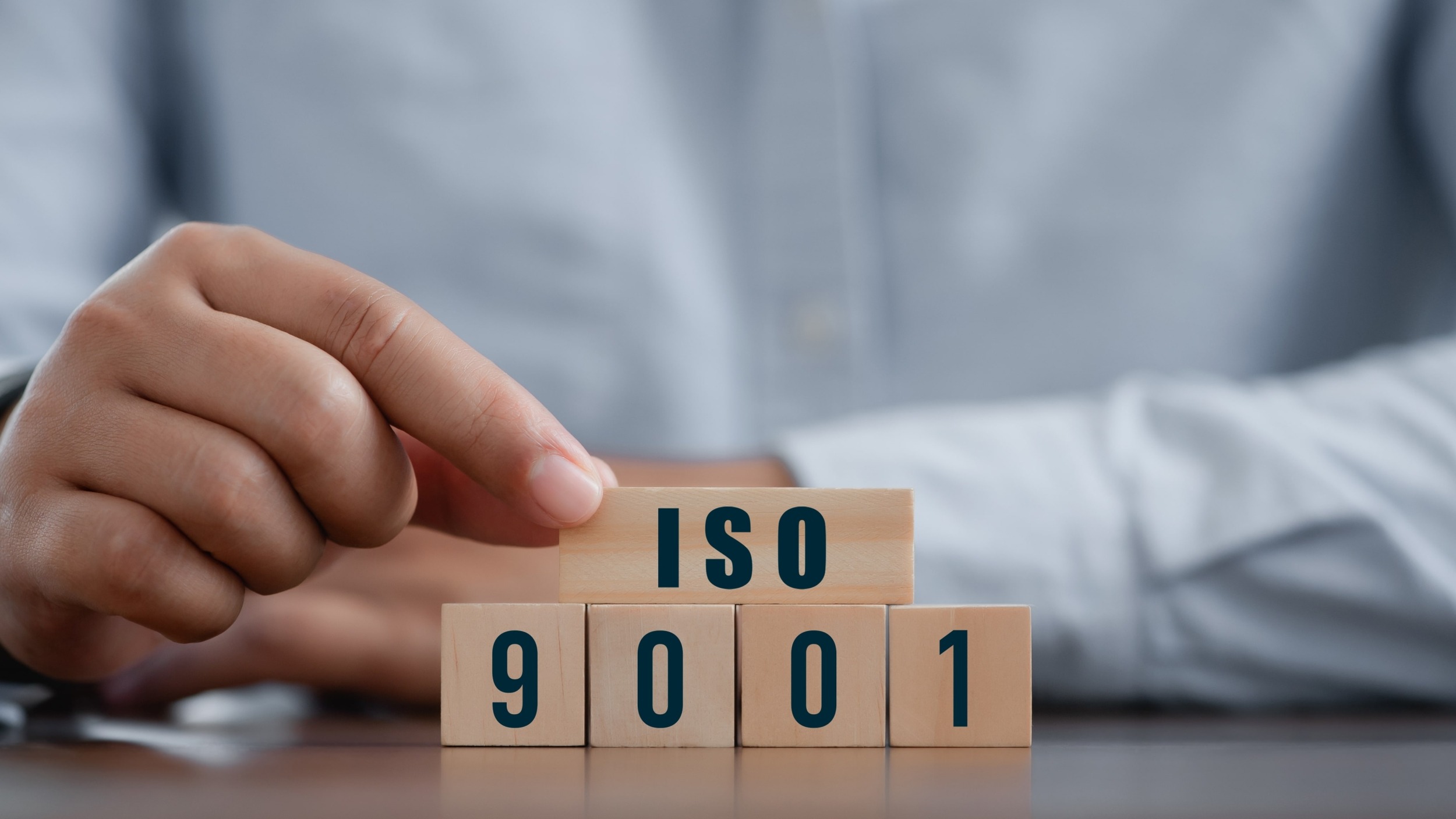Advances in technology, increased regulatory security and a growing focus on sustainability mean that compliance requirements are becoming stricter across many industries. Protecting brand reputation and preventing costly recalls are driving organizations to make company-wide compliance a top priority.
In this article, we’ll outline some of the key compliance challenges faced by food and beverage manufacturer Mark Anthony Group and explain how it has used an automated quality management system (QMS) to address these challenges.
Compliance Challenges Facing Food and Beverage Manufacturers
Food and beverage manufacturers face many challenges related to quality management. Understanding and addressing compliance issues can help manufacturers to mitigate risks and maintain brand integrity.
Increasing Number of Regulations
The quantity of federal regulations that manufacturers must adhere to is constantly increasing, and organizations are struggling to keep up. Most organizations also have their internal standards that they must comply with, in addition to customer and market requirements. The financial and reputational cost of failing to meet these regulations can be high, which is driving more organizations to seek out regulatory compliance solutions.
Issues with Manual Processes
Many manufacturers are still relying on manual, paper-based processes instead of implementing a central repository to share information. Unfortunately, this can lead to compliance challenges. It can make it difficult for people within the organization to access the information they need to do their job, and it also increases the chance of important documents getting lost.
Inconsistent Documentation Methods
Overhauling your processes is time-consuming and expensive. It’s hardly surprising that so many organizations have multiple systems across different locations. While this may seem like the most convenient option at the time, it can introduce challenges such as duplicate, inconsistent, or lost information.
It’s frustrating and can significantly reduce productivity, and ultimately cost the company money and brand loyalty due to poor product quality. It often makes it difficult to access clear audit trails, which can lead to compliance issues.
Managing Corrective Actions Across Locations
In large organizations, it’s common for teams spread across multiple locations to have their own way of carrying out corrective actions. Unfortunately, this can lead to issues and confusion in the manufacturing ecosystem. Alignment of corrective action processes across multiple locations is vital to ensure quality consistency.
The Role of Quality Management Systems in Compliance
Centralized quality management systems (QMS) are the key to simplifying compliance across organizations. QMS software can organize documentation, improve the audit management process, streamline corrective actions, and ultimately help organizations maintain brand integrity.
Reducing Non-Compliance Risks
Failing to meet compliance requirements has serious consequences. It can lead to waste, scrap, recalls, warranty costs, and potential fines and penalties.
A QMS helps organizations check that they have gained approval and remain compliant in the eyes of the required agencies before releasing a product. Automating the quality management process ensures that all of the steps have been followed in the correct order, helps mitigate non-compliance risks, and reduces the risk of costly recalls.

Streamlining Operations
Automating compliance processes, such as managing customer complaints and field failures, leads to increased operational efficiency.
On average, organizations that used a QMS reported a 30% reduction in the time spent managing customer complaints. This frees up employees’ time to focus on other, more important tasks that drive revenue.
Cost Reductions and Revenue Growth
A QMS can lower compliance costs and speed product launches, adding to the organization’s revenue growth potential. On average, organizations that used a QMS reported a 10% reduction in field failure costs.
Furthermore, organizations that used a QMS reported a 40% reduction in the new product development timeline. This meant they were able to get new products out to the market faster, creating new revenue-generating opportunities for the organization.
Case Study: Mark Anthony Group’s Compliance Journey
Mark Anthony Group is a multinational company renowned for producing fine wines, spirits, flavored malt beverages, and ready-to-drink products. Founded in 1972, it now employs over 2,000 people worldwide.
The organization began using the ETQ Reliance® platform in 2010 to assist with document control, consumer complaint handling, and compliance.
Expanding ETQ Reliance to Meet Growth Needs
Over the years, ETQ Reliance has played a key role in helping the Mark Anthony Group to handle rapid business growth while maintaining its high-quality standards.
The organization has been expanding rapidly over the years, with new co-packers, re-packers, and its own breweries. Meanwhile, ETQ Reliance has evolved with the company to include additional applications and workflows.
Integrating its enterprise resource planning (ERP) system with ETQ has allowed external co-packers to access information easily. Additionally, integrating its customer support system with ETQ has enabled the quality team to investigate customer complaints more quickly and effectively.
Building Compliance into Product Development
The alcohol industry is highly regulated, and the US, which is the Mark Anthony Group’s largest target market, is governed by the Alcohol and Tobacco Tax and Trade Bureau (TTB). As a result, the organization needs approval from the TTB for its labels and packaging. Packaging that does not meet these standards would need to be destroyed, leading to wasted money and team resources.
ETQ Reliance has helped the organization avoid these costly packaging recalls by allowing it to integrate its compliance checks into its product development process and trigger automated compliance reviews based on set criteria. This ensures all packaging designs meet the required guidelines before they are finalized and produced.
Regulatory Response Management
Mark Anthony Group has recently implemented the Regulatory Agency Response workflow within the organization. Regulatory compliance solutions like this are designed to help the organization record regulatory visits and manage regulatory responses.
ETQ Reliance connects this information to the organization’s Corrective and Preventive Action (CAPA) module so it can be accessed whenever it is required. It also allows the organization to assign a security level to each record to control who can access the document. This helps to maintain compliance with best practices across the organization.
Customization to Fit Business Processes
Finding one platform that can do everything is difficult, which is why so many organizations resort to implementing several disjointed systems designed to meet their requirements. ETQ Reliance has harmonization capability, which means there is no set standard for how it must be used.
In addition to being customized to adapt to an organization’s specific workflow requirements, ETQ Reliance can also be scaled according to its size.
Encouraging Adoption Through Training and Socialization
When implementing a new compliance management system, it is vital to train employees and engage upper management in the compliance process. A successful training program gives departments ownership over the system and encourages them to use it correctly, ultimately maximizing system usage. It also helps teams apply the system to solve other business problems.
Teams can also build a business case that includes the ROI for the QMS. They can then show it to different departments within the organization who would use or approve the system to get their feedback and use this to increase the chance of adoption.
Driving Compliance with Quality Management Systems
A company-wide compliance system like ETQ Reliance is essential for maintaining brand reputation, reducing recalls, and enhancing operational efficiency.
ETQ Reliance is specially designed to be highly configurable by non-technical business administrators. This makes it a highly accessible option for organizations looking to overhaul their audit management process and maintain compliance best practices.
For more information on how ETQ Reliance can help keep food and beverage companies delivering optimal quality and staying compliant, please visit our Food & Beverage Industry web page


